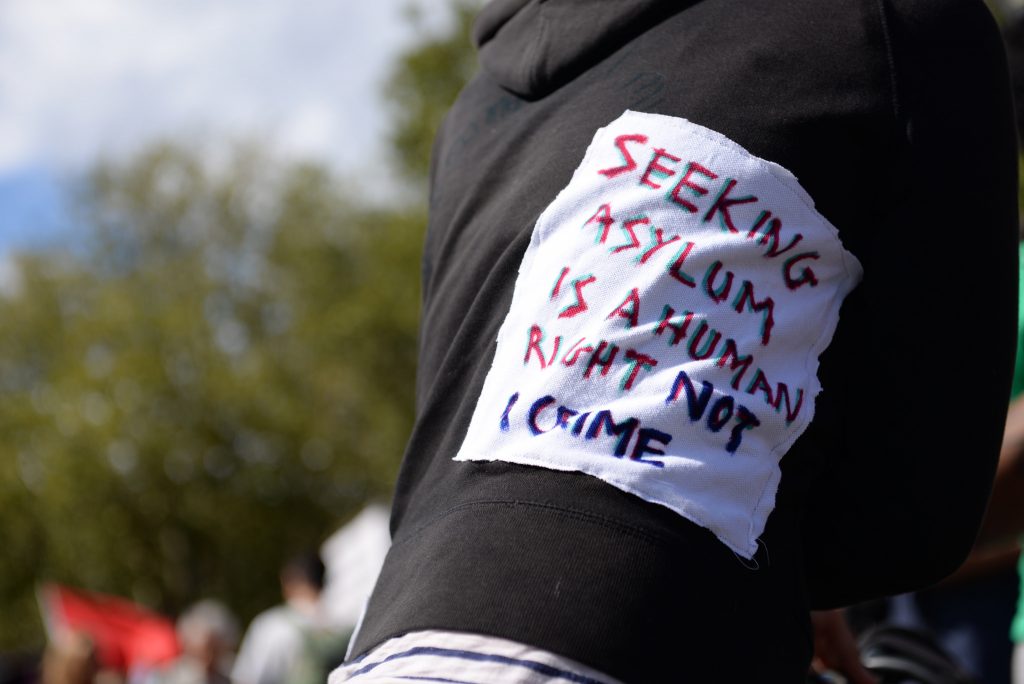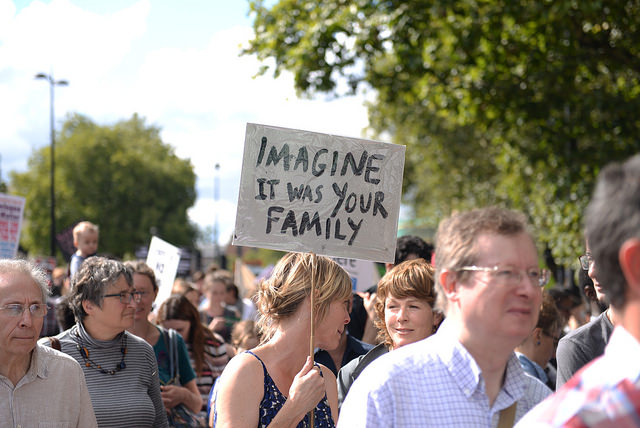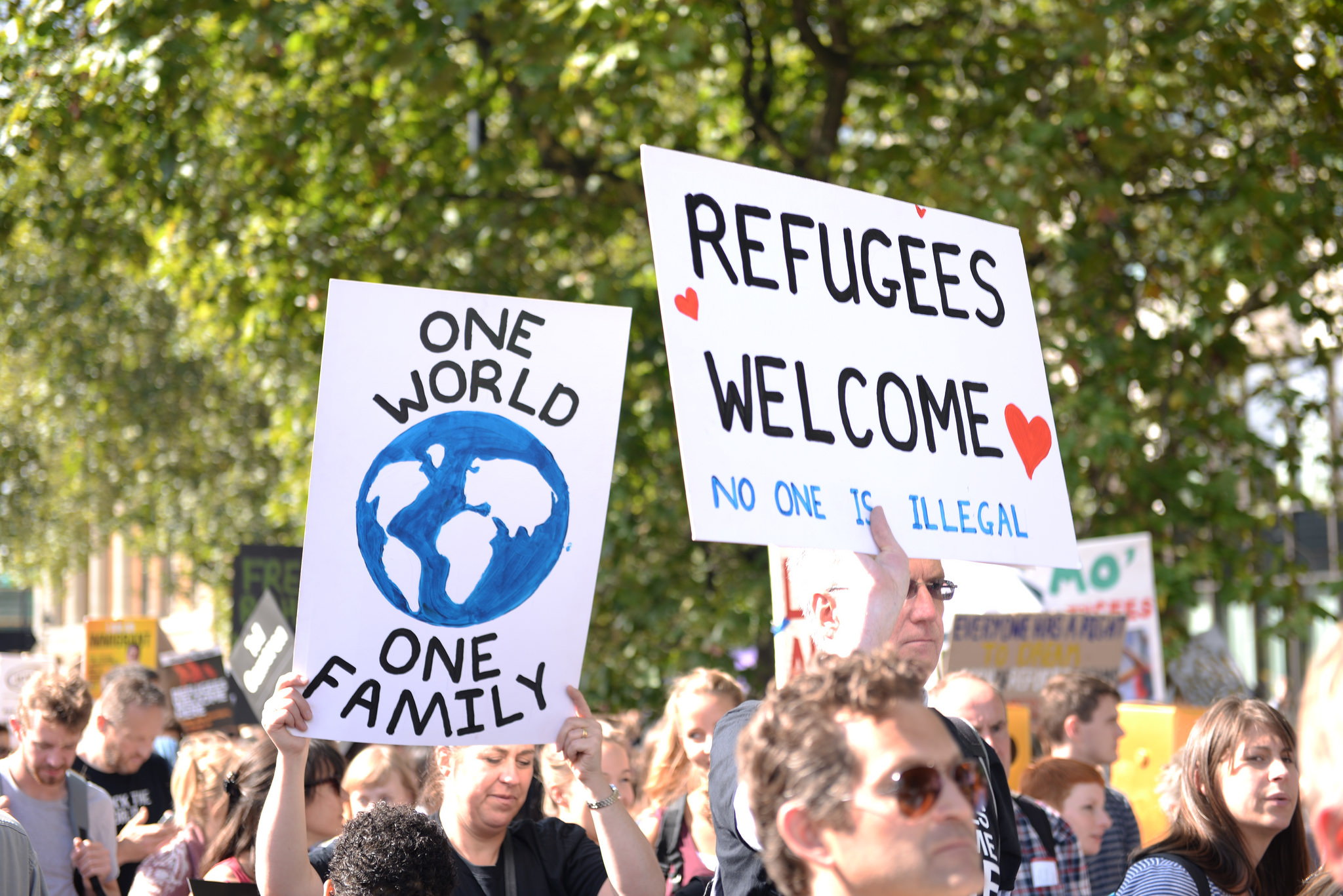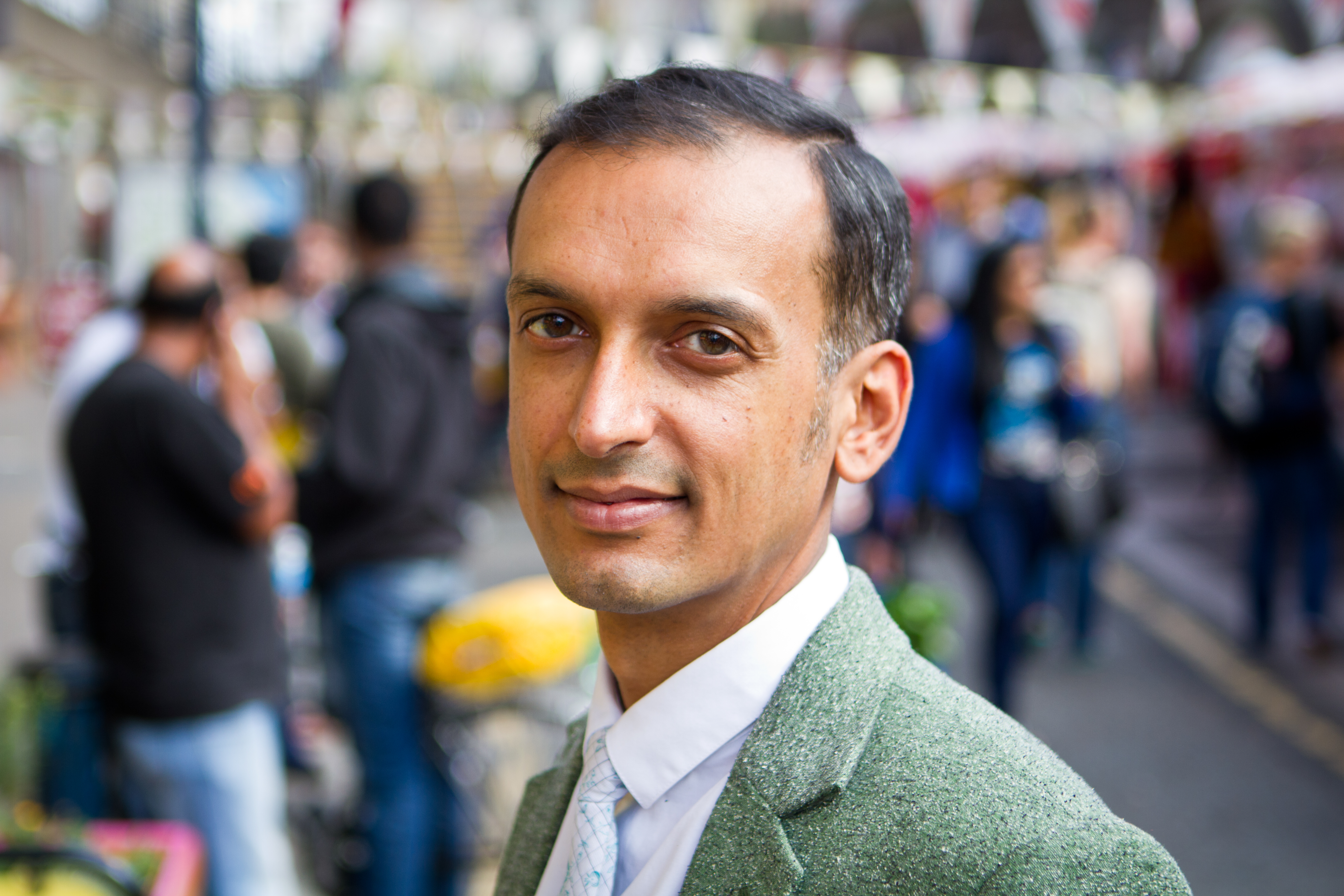The government’s treatment of unaccompanied child refugees has been ruled unlawful by the Court of Appeal.
Unaccompanied refugee children, whose entry to the UK under the Dubs amendment was denied, were given “patently inadequate” reasons for their rejection, said Lord Justice Hickinbottom yesterday. This limited their right to appeal.
What is the Dubs Amendment?
 Welcome Refugees march in London, September 2015 Credit: Ilias Bartolini
Welcome Refugees march in London, September 2015 Credit: Ilias Bartolini
In May 2016 Labour peer and former MP, Lord Dubs, himself a child refugee fleeing Nazi-occupied Czechoslovakia who arrived in Britain in 1939 aged six, sponsored an amendment to the Immigration Act (2016).
The amendment secured the agreement of the government to, “make arrangements to relocate to the United Kingdom and support a specified number of unaccompanied refugee children from other countries in Europe”.
The Dubs Amendment was made in response to the Syrian refugee crisis. It saw the government agree to take unaccompanied child refugees from Greece, Italy and France and consider their resettlement in Britain.
The government stated it would prioritise children at risk of trafficking and exploitation, and those with family in Britain.
Child Refugee Rights under International Law?
 Welcome Refugees march in London, September 2015 Credit: Ilias Bartolini
Welcome Refugees march in London, September 2015 Credit: Ilias Bartolini
Refugees who have family in Britain have a right to join their families in Britain.
This is secured by a separate piece of legislation, the Dublin III agreement, which is an EU law, that says families have the right to stay together.
This means refugees have a right to join family members if they are legally in a certain country, to enable the family to be together.
In theory the Dublin Agreement enabled child refugees living in the Calais refugee camp, known as The Jungle, to come to Britain legally if they had family living here, legally.
Child refugees also have a whole host of rights under the Refugee Convention and the Convention on the Rights of the Child.
A Victory for Campaigners
Alongside @helprefugees, I have been fighting for the rights of vulnerable child refugees. Today, I'm pleased to say that it was worth it. The courts agreed: every lone child we have turned away deserves an explanation & a chance to appeal a rejection under #Dubs scheme. pic.twitter.com/R4RT86Bn6S
— Alf Dubs (@AlfDubs) October 3, 2018
Yesterday’s challenge was brought by charity Help Refugees.
Following the Court of Appeal’s ruling Josie Naughton, CEO of Help Refugees, said “Today’s judgement rightly forces the government to recognise that every child must be given reasons for refusal under the Dubs scheme.
For two years, vulnerable children have been rejected without any explanation. Children who received these decisions are now missing; for them it is too late. These spaces, that still remain unfilled, could have saved their lives. Instead, children have been left in mental anguish, at risk of exploitation and abuse.”
For two years, vulnerable children have been rejected without any explanation. Children who received these decisions are now missing; for them it is too late.
Josie Naughton, CEO of Help Refugees
Lord Dubs added: “For two years, we have fought tooth and nail for the rights of these vulnerable children. Today, I’m relieved to say that it was worth it.
“Every unaccompanied child we have turned away deserves an explanation and a chance to appeal the decision, and we’re delighted the courts have agreed with us on that.”
Every unaccompanied child we have turned away deserves an explanation and a chance to appeal the decision.
Labour Peer and former MP Lord Dubs
Help Refugees had also argued the government had failed to justify its cap limiting the number of unaccompanied child refugees who could come to Britain under the Dubs Amendment to 480.
The court rejected this, and the number of unaccompanied child refugees who can come to Britain under the Dubs Amendment remains at 480. However, under the Refugee Convention, the UK government must never return a refugee to a territory where they face serious threats to their life or freedom. This is known as the principle of ‘non-refoulement’. So, once a child refugee arrives in the UK, they must not be returned to a hostile state or territory, regardless of any cap set by the government.
Help Refugees is now campaigning to ensure the remaining spaces are filled as soon as possible to ensure children do not spend a winter on the streets.
DUBS VERDICT ANNOUNCED: After a 2-year-long legal battle, today the gov was finally forced to acknowledge its unfair treatment of lone refugee children denied entry to UK under Dubs. This would not have been possible without tireless campaigning of 1000s of supporters. Thank you! pic.twitter.com/05DsQ7SigN
— Choose Love / Help Refugees (@chooselove) October 3, 2018
Featured image: Welcome Refugees march in London, September 2015
Credit: Ilias Bartolini







